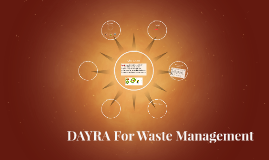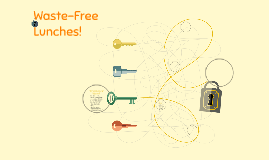Waste Management
Transcript: Local governments in Australia believe that they have a responsibility in managing community waste. This includes having an arrangement for collecting waste regularly from households and to store, recycle or dispose waste in a proper manner. They also feel the need to inform their communities about how to manage their waste properly. Organisations such as Planet Ark are known to support recycling and have many environmental campaigns for it. This includes their campaign to urge people to recycle their aluminium cans and National Recycling Week which raises awareness about the fact that recycling helps reduce people's impact on the environment. This campaign also encourages individuals and businesses to change their disposal habits and to either recycle more or recycle better. contributing to the 'reduce, reuse, recycle campaign placing home waste into recycling bins Waste Management Photo based on: 'horizon' by pierreyves @ flickr Where is it happening? Methods of Waste Management It is the collection, transport, processing or disposal, managing and monitoring of waste materials. Focuses on delaying the rate of consumption of natural resources. The management of waste treats all materials as a single class - solid, liquid, gas or a radioactive substances. Can be disposed into air,water land and coasts. Most waste is produced in cities. WATCH A RECYCLING COMMERCIAL Kimbriki Recycling Centre: Kimbriki Recycling Centre is operated by Warringah Council in collaboration with Manly, Mosman and Pittwater Council. The centre recycles 70 per cent of the waste brought in and recovered 1.5 million tonnes of material between 1990 and 2005. The main materials recycled are: •Vegetation, which is shredded into soil conditioner mulch and wood chip. •Metal, which is sent to scrap metal recycle. •Concrete, brick , terracotta and asphalt, which are crushed into gravel. There are also collection points for various other recyclables- vehicle batteries, toys, corks, clothing, glass, plastics, aluminium cans, cardboard and paper, tyres and motor oil. As an incentive to the public there is no charge made for unloading recyclable household items or vegetable matter Individual Why is it happening ? What is it ? •The odour of the waste – disturbs neighbour hoods •Toxic waste – threat to humans and the environment. •Exposure to harmful germs •Won’t be able to go to places such as the beach or national park – amount of litter prevent people from going Local Council Waste Management happens locally, nationally and globally. It happens in developing and developed nations in both rural and urban areas. The process usually takes place in the metropolitan areas of the country. How is the issue managed ? Environment Globally • Landfill • Incineration • Recycling • Biological Reprocessing • Energy Recovery Vodaphone has found their phone to be a hazard and wants to dispose unwanted phones responsibly. They try to encourage customers to return their old phone, so they can be recycled. They also try to resell or reused old phones. There are limited facilities to recycling e-waste. Vodaphone choose to continue the process of recycling old phones even though there are limited facilities to recycling e-waste. What are the effects of issue in the environment and community ? •Pollutants will leak into soil, ground water, rivers and seas that would impact food chains. •Generate methane gas – contributes to the greenhouse gas effect •Air pollutants- increase of the greenhouse gas effect and acid rain •Loss of organisms – a result of polluted rivers and oceans •Algal blooms •Animals die from consuming or being entangled in plastic Community Population increase - unsustainable use of resources Leaves a large ecological footprint, especially in urban areas Australia produces 18 million tonnes annually - disturbance in land and soil's natural composition and discontinues growth rate - causes land pollution We need to conserve and slow down the rate of consumption of our natural resources. Government Group

















